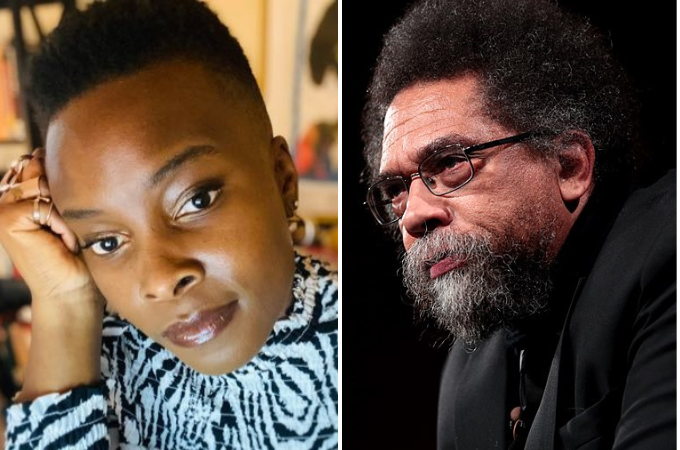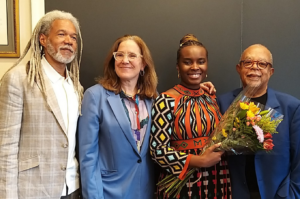
This somewhat unusual, brilliant piece published by The Boston Review caught our attention, and we thought to share it. The essay is titled “Black Spirit, Black Struggle: When Desmond Tutu reconciled African theology and Black theology” and is written by South African author and Harvard Phd student Panashe Chigumadzi and American intellectual Cornell West.
The essay looks at global black solidarity through the lens of politics and theology. It is lengthy but immersive and genuinely captivating, brimming with fascinating details that depict a moment in the 20th century when black intellectuals engaged in truly global conversations.
Chigumadzi and West begin with the observation that black people used to talk to each other, share struggles, and see their futures as interlocking. Those were, unfortunately, the by-gone days of pan-Africanism and various kinds of black internationalisms. Today, all that has changed due to the effects of what they call “predatory racial capitalism.”
In this crisis of solidarity and separation—of sister from sister, struggle from struggle, struggle from spirit, and spirit from study—all call and response has dissolved. Africa calls and the Afro-Diaspora does not answer. The Afro-Diaspora calls and Africa does not answer.
Also:
as late-stage capital consolidates itself across the globe, weaponizing borders against Black solidarity, the horizons of our Black political imaginations have shrunk from Pan-Africanist visions of self-determination to citizenship within the nation-state.
The core of Chigumadzi and West’s argument is that things have not always been like this. Black and African activists, academics, and artists have always engaged in exchange of ideas, struggles, and aspiration. They exemplify this with the brilliant, transatlantic, decades-long conversations that took place between John Mbiti and James H. Cone, with Desmond Tutu sort of moderating.
Using Mbiti’s African Religions and Philosophy and Cone’s Black Theology and Black Power as anchors, Chigumadzi and West assemble a space of encounter between African and Black theological thinking. They dig deep into the 1970s and recreate the vibrant intellectual scene, capturing the many voices, positions, stakes, and ideologies that frame Mbiti and Cone’s clash over the objective of theology in the context of blackness, but also how this debate carried through into forms of political organizing in the later part of the 20th century, even referencing the Black Lives Matter movement and Nigeria’s #ENDSARS protest.
Go here to read the full essay.









COMMENTS -
Reader Interactions